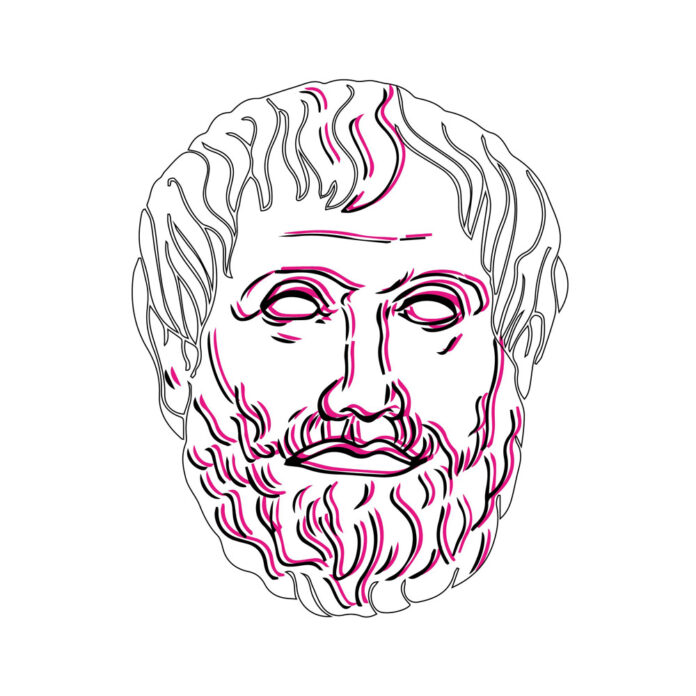Che cos’è il potere?
Sto riflettendo su cosa succede del potere con lo strapotere del digitale. Premessa: il potere è potenza, cioè possibilità, e il suo orizzonte di senso, anche fenomenico, è il possibile. É forza, autorità, consenso e controllo.
Può derivare – o possiamo pensare che derivi – da una decisione trascendente (la regalità), dall’imposizione della forza e/o carisma (totalitarismo o oligarchie) o ancora da una più meno spontanea o cosciente attribuzione del potere dal basso (varie forme della democrazia).
La politica è il potere sovrano; in essa sta il monopolio della forza/potenza/possibilità. Nella modernità il potere supremo si è incarnato nella forma Stato.
L’origine del potere
Il potere politico si dà come volontaria cessione di libertà da parte dei singoli mediante un patto reciproco in vista dell’autoconservazione (Thomas Hobbes) e nel contempo, come capacità di un soggetto (singolo o collettivo) di esercitare (talvolta attraverso l’uso della forza) un controllo sui comportamenti di altri soggetti, anche senza il consenso di questi, condizionandone le decisioni e quindi la vita (Max Weber).
Per alcuni il potere ha le sue radici nella fiducia, nella paura, nella speranza e, a volte, nella disperazione, e dal bisogno di protezione: da qui l’obbedienza. Ha una logica interna che va al di là di chi lo subisce ma anche di chi lo esercita (Carl Schmitt). Non ha identità, ma produce identità, quelle ben descritte dalla dialettica servo/padrone della Fenomenologia dello spirito di Georg Wilhelm Friedrich Hegel: il servo è la produzione, il padrone è il consumo. Il servo non è disposto a morire, mentre il padrone sì.
Il potere come discorso
Il potere può essere anche visto come un campo relazionale mai gestito da qualcuno. Esso è vittima di se stesso. È, prima di tutto, un “discorso” (una proliferazione di discorsi) che si autocostituisce in seguito a stratificazioni di un senso piuttosto che di un altro (Michel Foucault). Il potere è sempre incarnato e il suo territorio è quello della biopolitica. Nel contempo la sua soggettività è oggettività.
Questo il quadro (maledettamente sintetico). E nel tempo del digitale dove si colloca il potere? Quale la sua fenomenologia? Comunque sia, il dominio sta sul controllo: dimmi le forme del controllo sociale in atto e ti dirò che di tipo di potere, o di Stato, sei.
Il digitale permette il controllo di tutto e su tutti e ciò che controlla ed elabora sono in-formazioni, dati, e tutto è manipolabile come informazione, compresa la nostra stessa vita (nuda o vestita che sia). Questo significa che il dominio, nel tempo del digitale (e noi tutti siamo volenti o nolenti nel digitale) non potrà che essere totale e – per essere espliciti – non potrà configurarsi che come totalitarismo, persino irridendo ciò che chiamiamo democrazia? Cercherò di rispondere nella prossima spigolatura.
What is power?
I’m thinking about what happens to power with the overwhelming power of digital. Premise: power is capability, or better possibility, and its horizon of meaning (even phenomenal) is the possible.
Power is strength, authority, consent. It can derive – or we can think that it derives – from a transcendent decision (royalty), from the imposition of force and / or charisma (totalitarianism or oligarchy) or from a less spontaneous or conscious attribution of power from below (various forms of democracy).
Politics is sovereign power; the monopoly of force / power / possibility lies in it. In modernity the supreme power is embodied in the form of the state.
The origin of power
Political power is given as a voluntary cession of freedom by individuals through a reciprocal pact in view of self-preservation (Thomas Hobbes) and at the same time, as the ability of a subject (single or collective) to exercise (sometimes through the use of force) a control over the behavior of other subjects, even without their consent, conditioning their decisions and therefore their life (Max Weber).
For some people, power has its roots in trust, fear, hope and, at times, despair, and the need for protection: hence obedience. It has an internal logic that goes beyond those who are subjected to it but also those who exercise it (Carl Schmitt). It has no identity, but it produces identities, which are well described by the slave / master dialectic of Georg Wilhelm Friedrich Hegel‘s Phenomenology of the Spirit: the servant is production, the master is consumption. The servant is not willing to die, while the master is.
The power as a discourse
Power can also be seen as a relational field never managed by anyone. Power is a victim of itself. First of all, it is a “discourse” (a proliferation of discourses) which is self-constituting as a result of the stratifications of one sense rather than another (Michel Foucault). Power is always embodied, and biopolitics is its territory. At the same time its subjectivity is objectivity.
This is the (insanely synthetic) picture. And in the digital age, where does power lie? What is its phenomenology? In any case, the domination is on control: tell me the forms of social control in place and I’ll tell you what kind of power, or state, you are.
The digital allows the control of everything and everyone, controlling and processing information, and data. Everything can be manipulated as information, including our own life (naked or clothed). Does this mean that the domination of digital over time (and we all like it or not in digital) may be absolute and – to be explicit – may only be configured as totalitarianism, even mocking what we call democracy? I will try to answer in the next glean.








